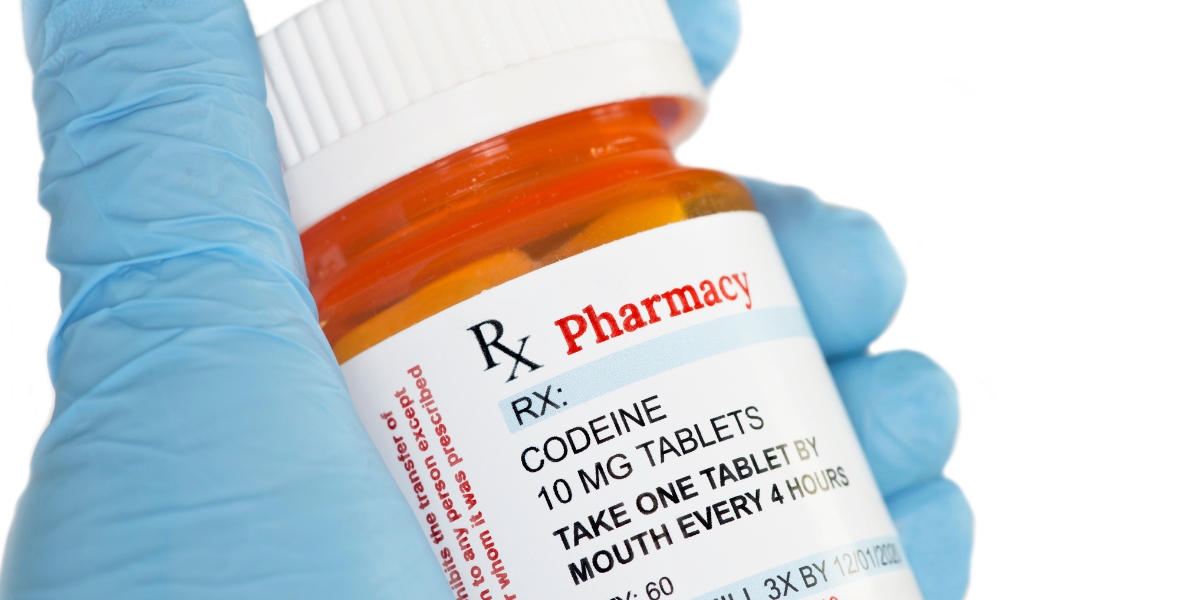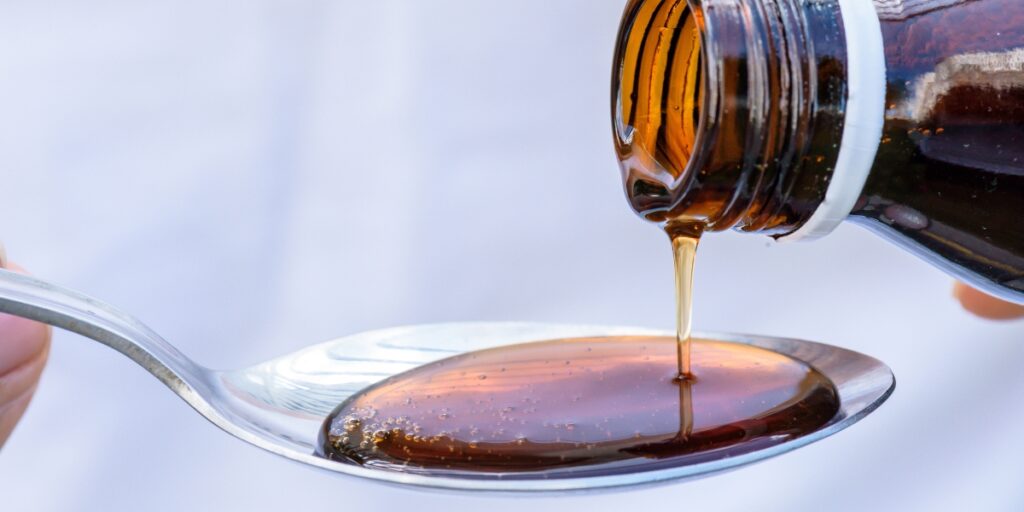Codeine Addiction and Abuse

The combination of misinformation about codeine being safer than other opioids and its popularity as lean or purple drank makes codeine addiction and abuse an increasing but often overlooked problem in the United States, especially among young adults.
Codeine is the only opioid that is not always a schedule II drug. Medicine with less than 90 mg of codeine is a schedule III drug, but ones with 90mg or higher are schedule II. The fluctuating classification has led to confusion and the myth that codeine is less addictive and weaker than other opioids.
Codeine abuse is often a precursor to addiction. An estimated 33 million Americans abuse codeine every year, with many developing an addiction to codeine and other opioid drugs. Many people struggling with opioid addiction and substance abuse admit that their addiction started with prescription pain medication like codeine.
Codeine addiction is as severe and difficult to overcome as any other substance use disorder and often requires professional treatment programs.
What Is Codeine?
Codeine is a prescription opioid that treats mild to moderate pain. Compared to other prescription opioids, codeine is shorter-lasting, making it the most widely used opioid pain medication in the United States. Codeine and its combination medications come in tablet, capsule, and liquid forms.
When combined with promethazine, codeine can act as a cough suppressant and pain killer. It doesn’t treat the cause of coughing but reduces nerve impulses that cause the cough reflex.
Many legislators and activists believe that regardless of the dosage, codeine should always be a schedule II drug with more oversight than it currently has.
Is Codeine Addictive?
Codeine is highly addictive. Many people mistakenly believe codeine is milder or less addictive than other opioids; however, when the liver and kidneys metabolize codeine, it is identical to morphine.
Prescription and recreational codeine users will quickly develop a tolerance and dependence with repeated use. Codeine addiction is an opioid use disorder that requires professional treatment, just like an addiction to oxycontin, heroin, or any other opioid.
Signs of a codeine addiction include:
- Running out of a prescription ahead of schedule
- Visiting multiple doctors or pharmacists to get more codeine
- Needing more frequent or higher doses to feel the effects
- Mixing codeine with other drugs or alcohol
- Craving codeine
- Accepting or stealing friends’ and family members’ medication
- Taking other medicines to get similar effects to codeine
- Anxiety about running out of codeine
- Lying about or hiding how much codeine you take
- Worsening mental health
- Experiencing withdrawal symptoms when you don’t take codeine
Many addiction treatment specialists consider codeine a gateway opioid because of how quickly people become addicted and seek more potent opioids to feed their substance use disorder.
Researchers believe people who abuse codeine are often overlooked and underserved regarding addiction treatment and feel that catching codeine addiction early on can help reduce the opioid epidemic.
Codeine Cough Syrup
Codeine cough syrup is the most widely abused form of codeine; you probably know it by the street name lean or purple drank. Technically lean is a mixture of soda, candy, alcohol, and cough syrup, but some people drink the syrup straight.
Cough syrups with codeine typically have other ingredients, such as acetaminophen and other pain and cough relief components. Acetaminophen is the main ingredient in many non-prescription medications like Tylenol and Excedrin.
Over-the-counter medications that are harmless in low doses can quickly become dangerous and cause long-term damage in high doses or mixed with other substances.
Abusing codeine has become a growing trend among teenagers and young adults because of the high profile lean has in pop culture. Lean abuse is most common among young, lower-class men, the same demographic least likely to enter addiction treatment programs because of stigma and financial barriers.

Codeine Side Effects
The side effects of codeine will vary from person to person based on physical makeup, tolerance, dosage, and any other drugs or alcohol they’ve taken.
Codeine takes about 30 minutes to take effect and lasts four to six hours when taken as directed. As a central nervous system depressant, codeine causes sedation, drowsiness, relaxation, and slowed breathing and heart rate.
The desired effects of codeine are relaxation and euphoria, but those come with other less-than-pleasant side effects.
Immediate and short-term side effects of codeine include:
- Dry mouth
- Drowsiness
- Dizziness
- Nausea
- Vomiting
- Diarrhea
- Stomach pain and cramping
- Flushing or a rash
- Itching
- Dilated pupils
- Chills
- Sweating
- Confusion
- Loss of coordination
- Delayed reflexes
- Anxiety
- Slurred speech
- Blurry vision
- Respiratory depression
- Fading in and out of consciousness
Long-term side effects of codeine addiction and abuse include:
- Anxiety
- Depression
- Sexual dysfunction
- Dental decay, or “lean teeth”
- Muscle weakness
- Cognitive decline
- Memory loss
- Ulcers
- Kidney damage
- Liver damage
- Chronic fatigue
- Urinary tract infections
- Constipation
- Insomnia
- Bowel decay
- Muscle spasms
- Seizures
Long-term lean abuse increases the risk of dental decay and diabetes caused by the constant influx of sugar. Because most people who make purple drank mix codeine cough syrup with alcohol, chronic users risk developing alcohol and opioid use disorders.
Many side effects and complications of codeine abuse will resolve with proper medical care; however, the longer codeine addiction goes untreated, the more severe the mental and physical health impacts will become.
Codeine Withdrawal
The severity of codeine withdrawal symptoms with vary for everyone and includes physical and mental changes and discomfort. Like all opiates, codeine causes physical dependence, and quitting will cause withdrawal symptoms that range from uncomfortable to life-threatening.
Symptoms of Codeine withdrawal include:
- Flu-like symptoms
- Irritability
- Sudden and intense mood swings
- Strong cravings for codeine
- Nausea
- Muscle and joint pain
- Depression
- Changes in appetite
- Sleep disturbances
- Anxiety
- Restlessness
- Changes in body temperature
- Sweating
- Twitching or spasms
- Suicidal thoughts
If you plan on quitting codeine, you should always consult a medical professional to explore the best options to keep you safe. The side effects of codeine withdrawal can be unpredictable, especially if you are physically dependent on other substances. Medical detox in a professional treatment center is the best option for most people.

Evidence-Based Codeine Addiction Treatment
If you or a loved one are battling an addiction to codeine or are already struggling with substance abuse, help is available. It is always the right time to choose a different path, freedom from addiction.
Our compassionate, experienced, and licensed team at Northridge Addiction Treatment Center works with you to develop an individualized codeine addiction treatment plan that caters to your needs and concerns.
NATC’s private residential treatment center offers onsite medical detox to ensure safety and dignity through withdrawal with 24-hour medical support and care.
We address co-occurring mental health disorders with dual diagnosis and evidence-based, holistic treatment approaches. With cognitive behavioral therapy and guided support groups, we work to reshape how you think about recovery and instill confidence and skills to live a happy, healthy life in recovery.
Our treatment specialists can answer any questions about our treatment programs and how to take the first steps on your path to recovery. Reach out now, and we will support you every step of your journey.
Find Meaningful Recovery
Our caring and compassionate specialists are eager to help you comfortably navigate this journey to recovery. Our individualized treatment plan, programs, and therapies may be a perfect match for you or your loved one. Let us assist you in living the happy life you deserve. It starts with a phone call.




